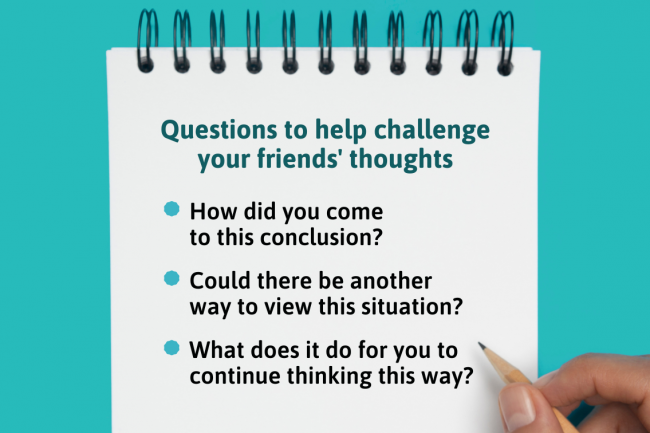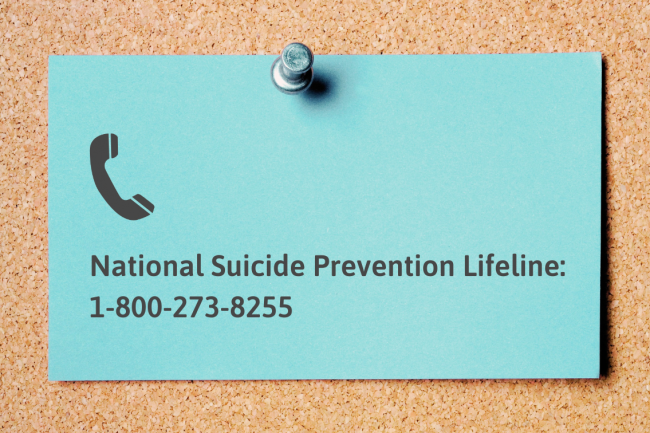Knowing how to offer support to a friend who is going through a difficult time can be challenging. If you haven’t been through what your friend is going through, it can be hard to relate to their pain. You want to make your friend feel better, but you’re scared you might do or say the wrong thing and make them feel worse.
In this article, you will learn how to support your friends in a way that really helps. The advice given can be applied to any situation where your friends need comfort, including:
- Going through mental health struggles or dealing with mental illness.
- Being diagnosed with a terminal illness, like cancer, or being the caregiver of someone who is very sick.
- Going through a bad breakup, separation, or divorce, or currently in a toxic relationship.
- Going through issues related to pregnancy, including abortion, miscarriage, and IVF.
- Grieving the loss of a loved one or a pet.
- Coming out as gay, bi-sexual, or non-binary.
In addition to learning how to support your friends, you will learn what signs to look for that may suggest your friend is going through a tough time. You’ll also be given some important reminders on how to avoid neglecting your own needs while tending to the needs of others.
Sections
- How to support a friend in need
- Signs your friend may be struggling
- How to care for yourself while caring for others
- Common questions
How to support a friend in need
When it comes to uplifting friends who need moral support, the most important thing you can do is practice empathy. Often, people feel the need to fix their friends’ problems. But what friends really need is to feel understood, accepted, and cared for. You can’t take your friends’ pain away, but you can go through it with them and be their witness.
Here are 9 ways to support a struggling friend:
1. Actively listen to them
If a friend opens up to you about something and you immediately start offering them advice and solutions, they will not feel emotionally supported.
Being there for someone is not about saying the “right” thing. It’s about creating a safe space for them to share and to validate that whatever they’re feeling is okay. Providing validation requires listening for feelings, then relaying these back to the other person.
Suppose your friend told you:
“I’ve been trying to conceive for a year. I’m starting to think it’s hopeless.”
To provide validation, take a best guess at how your friend must be feeling:
“I can understand why you’re feeling discouraged. You didn’t think it would take this long, nor be this difficult. It’s disappointing.”
2. Use open-ended questions to help them reflect
Socratic questioning is a strategy used by therapists that allows them to be there for their clients without directly giving them advice. This style of open-ended, thought-provoking questioning helps people open up and develop better insight into their problems.[1]
You can use Socratic questioning to help your friend see their issues from a more neutral perspective. Make sure to acknowledge your friend’s emotions before you question them. Otherwise, they may not feel heard.
Say your friend tells you,
“I can’t believe my husband cheated on me. It must mean I’m an awful wife.”
You could ask them:
- How did you come to this conclusion?
- Could there be another way to view this situation?
- What does it do for you to continue thinking this way?

3. Keep the focus on your friend
It can be tempting to share your own story with your friend if you’ve been through something similar, but doing so is not always helpful. It can make your friend feel like their story is not that important or that yours is more important.
If you think your story could be helpful, mention it briefly but don’t share the details.
Say your friend told you:
“My father has cancer. We haven’t decided if he should have chemotherapy or try an alternative treatment.”
Instead of saying, “Well, my uncle had chemotherapy and…” say:
“I know how tough a decision that can be. I had a family member go through something similar.”
Let your friend decide whether they want to hear more about it or not.
4. Anticipate their needs and offer help
A friend who is going through hardship may benefit from a helpful gesture. When people are feeling down, they don’t always think to ask for what they need from others. So it’s better to be proactive in offering help.
Don’t ask your friend how you can help them—this puts the responsibility back on them. Instead, think about what your friend may need given the problem they are facing. Then, initiate help.
For example, a friend who is depressed might need extra motivation to get out of the house. You could offer to help them by texting them:
“I’m going for a stroll around the park. I can pick you up in an hour if you’d like to join me?”
5. Be thoughtful
Small gestures that show your friend you are thinking of them can do wonders to inspire them during hard times. This strategy is something that can work for long-distance friends, too. You don’t need to be in the same city or even the same country as your friend to show them that you care.
One example of a thoughtful gesture could be to send them some words of encouragement over text. If you know they have a big job interview coming up and that they are stressed about it, send them a text wishing them luck. Another example, if you live near them, could be to cook them their favorite meal when you know they’ve had a bad day.

6. Respect that they know best
Assuming that you know better about what your friend needs than they do is wrong. If you force your advice and opinions on them, you will push them away. It can be hard to watch a friend suffer, but you are not responsible for the feelings or behavior of others. All you can do is support them as best you can.
The only time you may know better than a friend is if they have admitted to wanting to harm themselves or someone else. In this case, you should encourage them to seek help. The National Suicide Prevention Lifeline is a 24/7 confidential hotline providing support for people in emotional crisis. If your friend refuses support, call the hotline yourself to determine the best next steps to take to help them.

7. Use distraction
You can be a supportive friend by using distraction to help keep your loved one’s mind off their pain. Sometimes people don’t want to talk about what is bothering them, or they aren’t emotionally ready to. In these cases, doing something fun that helps them forget about their problems, and brings back some normalcy for a bit, can be helpful.
Say that your friend was diagnosed with breast cancer. She may be tired of people visiting her at home and having the conversations be all about her illness. Why not offer to do something exciting with your friend like you would before you found out she was sick? If she feels up for it, suggest going for lunch or for a scenic walk.
8. Instill hope in a brighter future
If your friend is going through a crisis, they may be feeling hopeless about the future. They may need help seeing that things can get better. That’s where you can come in.
Avoid giving your friend generic advice, like, “time heals all wounds.” Giving cliche advice can minimize your friends’ pain. Rather, remind them of their relevant strengths and how these could help them overcome this tough period.
Say your friend lost their job and is panicking about finding a new one. You could tell them, “I know that finding a new job is daunting, but you have something powerful in your toolkit—your ability to network. You connect with people so effortlessly.”
9. Encourage them to seek professional help
If you feel overwhelmed when hearing about a friend’s problems and you’re not sure how to handle the situation, it’s okay to be honest with them. Make sure that you’re not judgemental, though. This could put them off seeking help from anyone else.
You could say, “I’m so sorry to hear what you’re going through. I want to be there for you, but I’m not sure how or whether I have the capacity. Have you considered speaking to a professional?”
You could offer to help them find a therapist. You could also point them to a free crisis hotline, like the National Suicide Prevention Lifeline. You might like to read our article that explains how to convince a friend to go to therapy.
Signs your friend may be struggling
There are a few behavioral and physical changes that people show when they are feeling especially stressed or are experiencing mental health problems. If you notice any of the following signs in your friend, then you should try talking to them about your concerns.
1. They seem distant
Research shows that when people withdraw and are avoidant, it may be because they are dealing with a lot of stress.[2] This could look like your friend declining invitations to hang out, being quieter in general, or just not seeming themselves.
You might also like to read our article that explains what to do when friends distance themselves.
2. They have stopped responding to messages
If your friend has stopped replying to texts completely, or if their texts have taken on a different tone, then something might be up.
Being depressed can make people feel overwhelmed and low in energy.[3] So even something seemingly small, like replying to a message, can feel like a chore for someone who is clinically depressed.
3. They have stopped doing what they enjoyed
Anhedonia—loss of interest or pleasure in things that used to be enjoyable—is a symptom of depression.[4] If you have noticed that your friend has suddenly stopped engaging in activities they used to enjoy regularly, then they may be struggling emotionally.
4. They are more tearful
In the official manual used by psychologists to diagnose depression, one of the symptoms they look for is a persistent sad mood, which can include tearfulness observed by others.[5]
If you notice that your friend is crying more frequently or that they can’t seem to hold back their tears over small, daily frustrations, then there might be something larger at play.
5. They are more self-critical
Being self-critical has been linked to mental health issues like depression, eating disorders, anxiety, and bipolar disorder.[6][7]
Is your friend constantly talking negatively about themselves? For example, are they saying what a bad, dumb, or ugly person they are? This kind of self-talk could indicate an underlying mental health disorder.[6]
6. They have started using substances
If your friend has started drinking alcohol or using drugs when they didn’t before, or if they are using substances more regularly, this could be problematic. Self-medicating with drugs or alcohol is an unhealthy way to cope with life’s stressors, as well as other mental health problems.[8]
7. They have said worrying things
People who are suicidal might make active or passive statements about wanting to die.[9] Active statements include directly telling you that they wish to die. Passive statements include saying things like, “I wish I could just go to sleep and never wake up again.”
If you suspect that your friend may be suicidal, you should encourage them to call the National Suicide Prevention line. If they refuse to get help, you should call the hotline yourself and get advice on what steps to take next.
This article on what to say (and not to say) to a depressed person might be of help too.
8. They have lost or gained weight
When a person is stressed, especially over a long time, it can affect normal bodily processes, including appetite and metabolism. Depending on the body’s response to stress, weight loss or weight gain can occur.[10]
9. They look tired
Chronic stress can lead to sleep problems, such as trouble falling asleep or staying asleep.[11] If your friend is showing visible signs of fatigue, such as hanging eyelids, dark circles under their eyes, and pale skin, they may be experiencing sleep problems as a result of stress.
10. They are visibly not taking care of themselves
Research shows that some people who are depressed find it difficult to maintain personal hygiene standards.[12] When you see your friend, does it look like they just rolled out of bed and forgot to check the mirror before they left the house? If this seems out of character for them, then it could mean that they are struggling to keep up with life’s demands.
11. They have hurt themselves on purpose
When someone intentionally harms themselves, it’s because they are emotionally distressed and do not know how to cope with their difficult feelings.[13] It can also indicate an underlying mental health condition, such as depression, an eating disorder, or a personality disorder.[13]
If you notice strange marks on your friend’s body, such as cuts, scratches, or burn marks, and you suspect that these may be self-inflicted, don’t stay silent. Gently ask them about the marks, avoiding any judgment. Let them know that you are there for them and encourage them to seek help.
If they admit to feeling suicidal, you’ll need to get immediate support for them. You can contact the National Suicide Prevention line for help.
How to care for yourself while caring for others
Giving support to your friends is an admirable thing to do, but sometimes caring for others can take a toll on your own emotional and mental well-being. It is crucial that you keep up with your own self-care and that you set boundaries when it comes to helping your friends.
Here are 4 ways you can practice self-care while supporting others:
1. Don’t take on too much
If you are a highly sensitive person, then you may be affected more by others’ moods.[14] If you start to become overwhelmed by your friends’ problems, take a step back. Be honest with your friend and let them know that you don’t feel you have the capacity to help them. Offer to help them find professional support from a therapist.
2. Set boundaries
It’s important to know your limits when it comes to how much support and what kind of support you’re willing to give your friends. If a friend has been calling you five times a day to talk about everything from their bad marriage to their sister who lost a baby, it can quickly become too much.
It’s okay to set a boundary around what your friend can expect in terms of your support. It’s fine to say, “I really want to be there for you, but I can’t be available at all hours of the day. Can we set some time aside to talk about these things in person?”
3. Practice self-care
Self-care involves doing things that promote mental, emotional, and physical health.[15] Some examples include going for a run, taking a warm shower, and meditating. Self-care provides a healthy way to cope with and process difficult emotions. That’s why it is important to practice self-care while caring for others—because hearing the struggles of those you care about can be emotionally taxing.
4. Talk to a therapist
Research shows that, in some cases, people can experience secondary trauma.[16] So if your friend was, for example, sexually assaulted and developed PTSD, you might develop a similar traumatic response.[16] Even if you are not severely traumatized by a friend’s problems, it can still help to talk to a therapist if you’re not coping emotionally.
Common questions
What should I do if I’m worried about someone online?
If you feel comfortable, send them a message of support and encourage them to seek help. If you think they are in danger or require professional support, report the post to the platform.
How can I ask if my friend is okay?
Set time aside to talk to them in private. Let them know ahead of time that you are concerned about them, and ask them if they’re open to talking about it. This way, they won’t feel caught off-guard when you talk to them.
What if I’ve been asked to keep a secret?
If your friend has admitted to wanting to harm themselves or others, then confidentiality has to be broken to keep your friend and other people safe.
Why are supportive friendships important?
Having a strong social support network promotes mental health. Social isolation, on the other hand, has been associated with poor mental[16] and physical health.[17]
If you struggle with being more social, we have an article on the importance and benefits of being more social that you might find useful.




